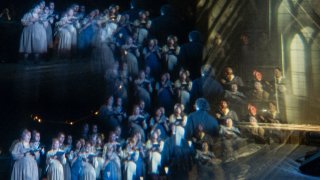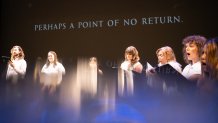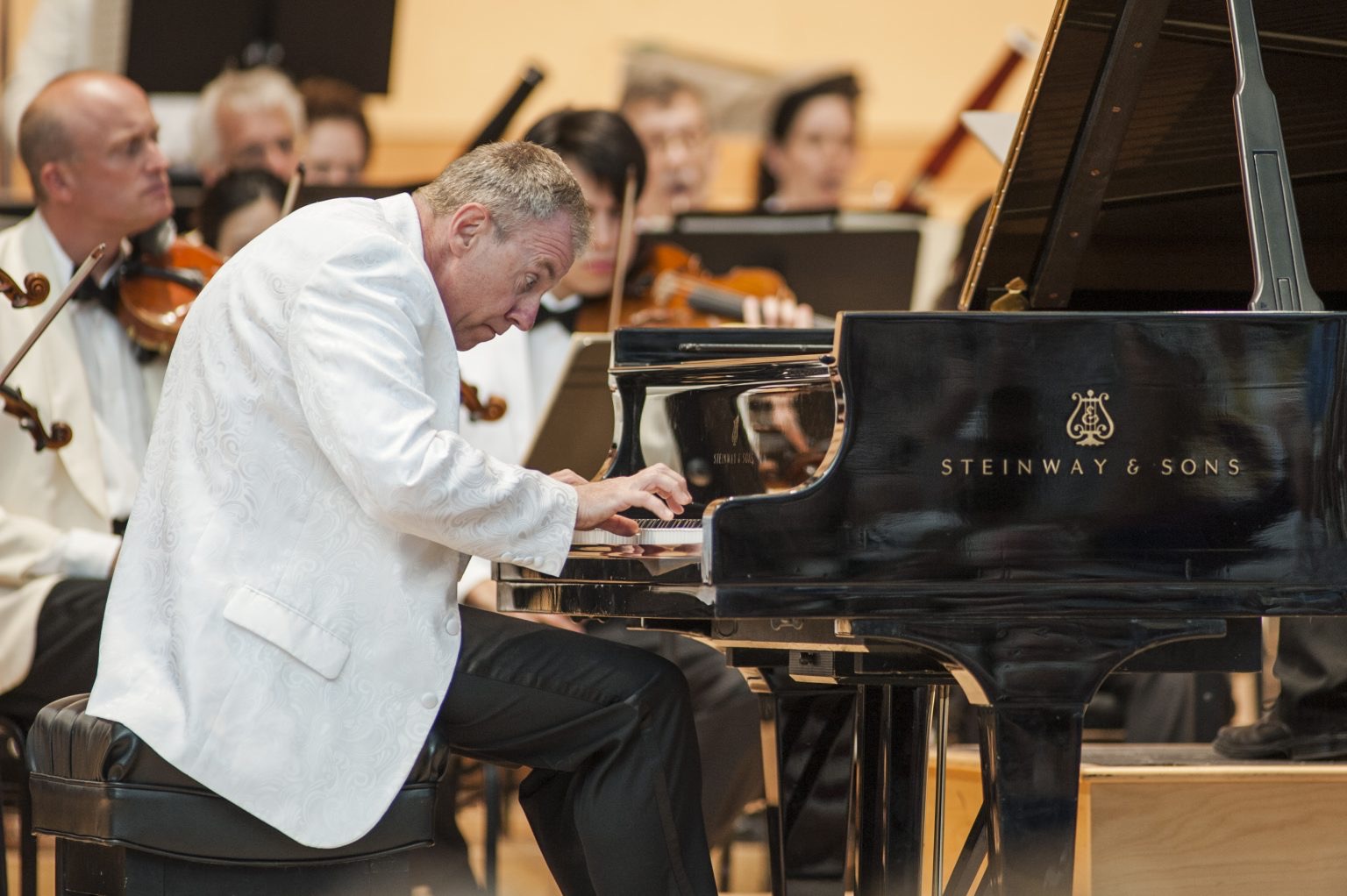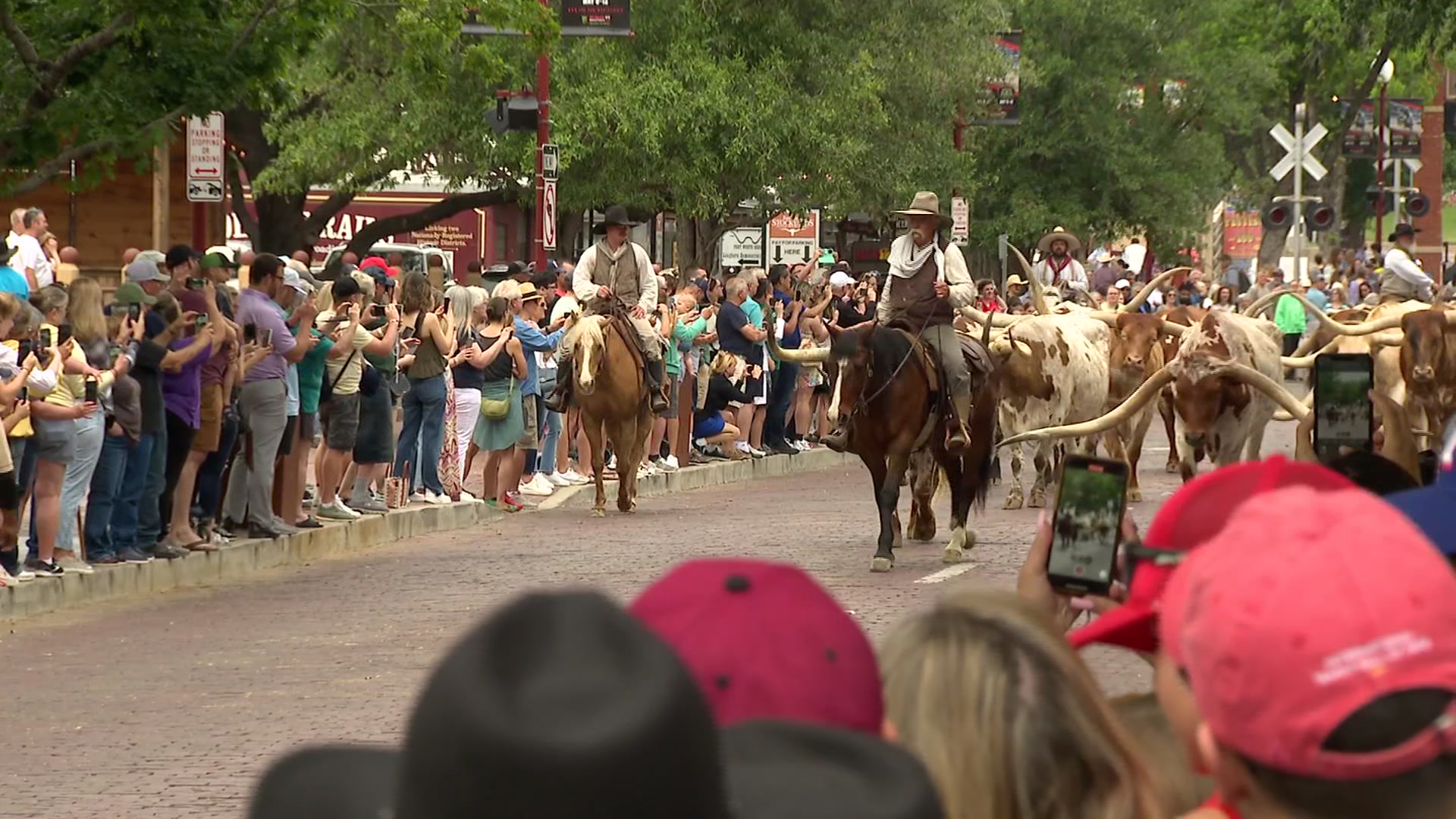
Verdigris Ensemble has been using its music to raise awareness about environmental justice and for the final concert of its seventh season, the Dallas-based choral ensemble is turning its focus on home. Mis-Lead is a 60-minute multi-media musical work about the residents of West Dallas who have suffered chronic diseases and death due to abnormally high levels of lead from local industry for several decades. Verdigris Ensemble will present Mis-Lead at Kalita Humphreys Theater in Dallas April 5-7.
The development of the piece began in 2020 when Sam Brukhman, Verdigris Ensemble’s artistic director, met Keri Mitchell, the executive director of Dallas Free Press. While she was working on a story about the Verdigris Ensemble, Brukhman discovered her passion for Dallas history and proposed this project.
“Verdigris' mission is to transform the world through immersive storytelling and with West Dallas, we are doing just that. Every city has a mixed history that provides context into its character. The good and bad about a city builds characteristic elements amongst its residents. I would argue that West Dallas is one of the most representative communities of the city, particularly in terms of resilience, courage, bravery, and never backing down. In my opinion, on a human level, we must tell these stories to everyone because people not only need to know the history of this area but also their people. Hopefully, it will spark people into action,” Brukhman said.

Get DFW local news, weather forecasts and entertainment stories to your inbox. Sign up for NBC DFW newsletters.
Brukhman commissioned Kirsten Soriano to compose the music.
“I am not from the Dallas area originally; I am from Minnesota where the first house I remember living in was a log home my father built himself in a pristine forest. As a result, I developed a deep connection to nature from an early age. I have now lived in the DFW area for the past eleven years and while here, learning that children in West Dallas were growing up playing in yards contaminated by lead and breathing unsafe air deeply saddened me. It impacted me to the extent that I wanted to be a part of this project,” Soriano said.
“Not being originally from the region, I felt that this was not my story to tell. I wanted to hear this story from West Dallas residents themselves, so I contacted a documentary film director, Michael Flanagan, with whom I have collaborated before on the feature film, Breaking the Code, to see if he would film interviews with residents of West Dallas who had been impacted by heavy industry, in some cases, for generations. In the Mis-Lead production, the audience will have the opportunity to hear from inspirational heroes such as Luis Sepulveda, who has dedicated his life to the West Dallas community through activism, advocacy, and community outreach, and Janie Cisneros, who is the leader of the West Dallas community group Singleton United/Unidos. The narrative for the production is largely chronological and the narrative and texts that the choir sings come from a wide range of sources including lyrics that were inspired by Luis Sepulveda’s testimony in Washington D.C., articles, dissertations, air sensor readings, interviews with people in the film, and poetry that I found with similar themes and concepts that help provide context and expression to the narrative.”
The Scene
Flanagan was intrigued about the concept of Mis-Lead.
“The story of environmental justice in Dallas is powerful and resonates more broadly as an issue that people around the world can relate to. The proactive examples of activists like Luis Sepulveda serve as an inspiration and reminder that perseverance does in fact yield results even when you are up against daunting odds. Verdigris Ensemble is tackling these issues in a uniquely creative way that incorporates a variety of technologies while involving the local community,” Flanagan said.
Flanagan’s process of creating the film aspect of Mis-Lead started much like his previous projects but resulted in being part of a unique team effort.
“The process consists of immersing myself in a subject through research and beginning to make connections with individuals in the community. The Dallas Free Press has done a lot of great work writing about the history of environmental issues in Dallas and these writings were a particularly valuable resource. The research component of working on this film is very similar to the work that went into Breaking the Code. The most significant difference is that I am collaborating with Kirsten on the narrative and guided by the fact that the film is only one part of a live multi-media performance,” Flanagan said.
Musically, Soriano focused on the community’s determination.
“The conceptual themes for Mis-Lead are about enduring hardships, facing seemingly insurmountable challenges, resilience, advocacy, and ultimately coming together as a community to solve problems. There are musical motives and themes associated with these ideas that are presented and return later in the production but are transformed and ultimately transcend by the end of the show,” Soriano said.
The spirit of the West Dallas community inspires Brukhman, Flanagan and Soriano.
“West Dallas has had one of the most toxic environments in the United States which has largely not been publicized. It took many decades to even acknowledge that there was a problem in that area. The citizens in that area have displayed an inordinate amount of perseverance and resilience amidst literally having poisonous lead in their bodies. Additionally, families in that area have to check air quality every day to make sure whether they need to wear masks or not. This is eerily similar to our storytelling of Dust Bowl,” Brukhman said.
“I was struck by the fact that West Dallas residents are dealing with a history that spans more than a century in their struggle for environmental justice. The fact that blatantly racist decisions regarding zoning and city planning made by individuals decades ago continue to affect present-day communities in clearly tangible ways is especially concerning. It’s one thing to read about these issues, but they really struck a chord when I visited the Singleton neighborhood and realized just how close in proximity it is to the GAF shingle manufacturing plant,” Flanagan said.
“I feel incredibly honored to have had the opportunity to meet and collaborate with West Dallas residents on this production and found so much passion, dedication, commitment, and good-will with the people we collaborated with on this project,” Soriano said.

Through music, people can connect to a darker chapter of Dallas's history and start a conversation.
“Music, by design, is a medium that allows for a meditative and deep space, much deeper than just speaking about an issue. The inherent spirituality of the poetry we are using, both by Octavio Paz and Maya Angelou, lend themselves to be interpreted with deeper meaning when combined with music. Music can both serve as relief but also as a reflection space, and using these two major emotional pillars, it allows the story to hit deeper into the heart. Our goal is not political, it is human. No one can argue with the human experience because it transcends the political left and right, the democrat and republican,” Brukhman said.
Learn more: Verdigris Ensemble



